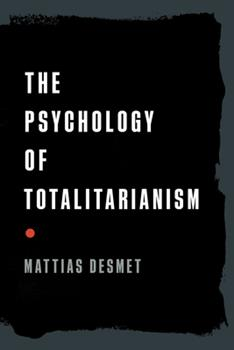With whom do you keep company? What leads your discussions with your community and family? Where and at what type media devices and sites is your attentions (and the opportunity for your own entrainment to be anchored) these days?
I’ve included this title in the site’s book list because I think the topic is one of incredible importance. And the topic is of such importance that in my opinion the discussion should be at every dinner table, every “connect with your friend” phone call and walk in the park.
Here is an incredible, recent interview conducted by ChildrensHealthDefense.org, CHD-TV with the author, Mattias Desmet. They discuss the issue of mass formation that others have recently noticed and begun commenting. I couldn’t stop listening. The final two minutes of the interview is telling. Desmet suggests the way forward is to hold fast with every ounce of determination we have, to our very human senses of our principles and our ethics.
And he noted and suggests from observing and reading from others observations, that holding these very human qualities dear can have a profound impact on our bodily wellness and health beyond expectation of our circumstances.
The publisher of the book, Chelsea Green Publishing, An Employee-Owned Company, offers this description of the author:
Mattias Desmet is recognized as the world’s leading expert on the theory of mass formation as it applies to the COVID-19 pandemic. He is a professor of clinical psychology in the Department of Psychology and Educational Sciences at Ghent University (Belgium) and a practicing psychoanalytic psychotherapist. His work has been discussed widely in the media, including on The Joe Rogan Experience and in Forbes, The New York Post, Salon.com, and Fox News, among hundreds of other outlets. His interviews have been viewed by millions of people around the world. His previous books include The Pursuit of Objectivity in Psychology and Lacan’s Logic of Subjectivity: A Walk on the Graph of Desire. Desmet is the author of over one hundred peer-reviewed academic papers. In 2018 he received the Evidence-Based Psychoanalytic Case Study Prize of the Association for Psychoanalytic Psychotherapy, and in 2019 he received the Wim Trijsburg Prize of the Dutch Association of Psychotherapy.
And a book reseller for this title, ThriftBooks.com offers this description:
The world is in the grips of mass formation–a dangerous, collective type of hypnosis–as we bear witness to loneliness, free-floating anxiety, and fear giving way to censorship, loss of privacy, and surrendered freedoms.
It is all spurred by a singular, focused crisis narrative that forbids dissident views and relies on destructive groupthink.
Desmet’s work on mass formation theory was brought to the world’s attention on The Joe Rogan Experience and in major alternative news outlets around the globe.
Read this book to get beyond the sound bites!
Totalitarianism is not a coincidence and does not form in a vacuum. It arises from a collective psychosis that has followed a predictable script throughout history, its formation gaining strength and speed with each generation–from the Jacobins to the Nazis and Stalinists–as technology advances.
Governments, mass media, and other mechanized forces use fear, loneliness, and isolation to demoralize populations and exert control, persuading large groups of people to act against their own interests, always with destructive results.
In The Psychology of Totalitarianism, world-renowned Professor of Clinical Psychology, Mattias Desmet, deconstructs the societal conditions that allow this collective psychosis to take hold.
By looking at our current situation and identifying the phenomenon of “mass formation”–a type of collective hypnosis–he clearly illustrates how close we are to surrendering to totalitarian regimes.
With detailed analyses, examples, and results from years of research, Desmet lays out the steps that lead toward mass formation, including:
-An overall sense of loneliness and lack of social connections and bonds.
-A lack of meaning–unsatisfying “bullsh*t jobs” that don’t offer purpose.
-Free-floating anxiety and discontent that arise from loneliness and lack of meaning.
-Manifestation of frustration and aggression from anxiety.
-Emergence of a consistent narrative from government officials, mass media, etc., that exploits and channels frustration and anxiety.
In addition to clear psychological analysis–and building on Hannah Arendt’s essential work on totalitarianism, The Origins of Totalitarianism–Desmet offers a sharp critique of the cultural “groupthink” that existed prior to the pandemic and advanced during the COVID crisis.
He cautions against the dangers of our current societal landscape, media consumption, and reliance on manipulative technologies and then offers simple solutions–both individual and collective–to prevent the willing sacrifice of our freedoms.
“We can honor the right to freedom of expression and the right to self-determination without feeling threatened by each other,” Desmet writes.
“But there is a point where we must stop losing ourselves in the crowd to experience meaning and connection. That is the point where the winter of totalitarianism gives way to a spring of life.”
“Desmet has an . . . important take on everything that’s happening in the world right now.”–Aubrey Marcus, podcast host
“[Desmet] is waking a lot of people up to the dangerous place we are now with a brilliant distillation of how we ended up here.”–Robert F. Kennedy, Jr.

